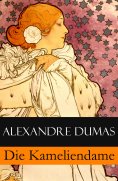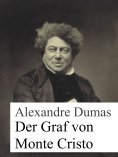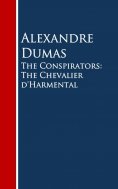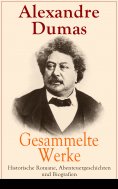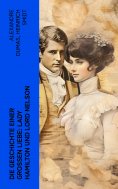The Whites and the Blues
About the eBook
On the 21st Frimaire of the year II. (11th of December, 1793), the diligence from Besancon to Strasbourg stopped at nine o'clock in the evening in the courtyard of the Hotel de la Poste, behind the cathedral. Five travellers descended from it, but the youngest only merits our attention. He was a boy of thirteen or fourteen, thin and pale, who might have been taken for a girl dressed in boy's clothes, so sweet and melancholy was the expression of his face. His hair, which he wore cut a la Titus - a fashion which zealous Republicans had adopted in imitation of Talma - was dark brown; eyelashes of the same color shaded eyes of deep blue, which rested, with remarkable intelligence, like two interrogation points, upon men and things. He had thin lips, fine teeth, and a charming smile, and he was dressed in the fashion of the day, if not elegantly, at least so carefully that it was easy to see that a woman had superintended his toilet. The conductor, who seemed to be particularly watchful of the boy, handed him a small package, like a soldier's knapsack, which could be hung over the shoulders by a pair of straps. Then, looking around, he called: "Hallo! Is there any one here from the Hotel de la Lanterne looking for a young traveller from Besancon?" "I'm here," replied a gruff, coarse voice. And a man who looked like a groom approached. He was hardly distinguishable in the gloom, in spite of the lantern he carried, which lighted nothing but the pavement at his feet. He turned toward the open door of the huge vehicle. "Ah! so it's you, Sleepy-head," cried the conductor. "My name's not Sleepy-head; it's Cocles," replied the groom, in a surly tone, "and I am looking for the citizen Charles." "You come from citizeness Teutch, don't you?" said the boy, in a soft tone that formed an admirable contrast to the groom's surly tones. "Yes, from the citizeness Teutch. Well, are you ready, citizen?" "Conductor," said the boy, "you will tell them at home - " "That you arrived safely, and that there was some one to meet you; don't worry about that, Monsieur Charles." "Oh, ho!" said the groom, in a tone verging upon a menace, as he drew near the conductor and the boy. "Well, what do you mean with your 'Oh, ho'?" "I mean that the words you use may be all right in the Franche-Comte, but that they are all wrong in Alsace." "Really," said the conductor, mockingly, "you don't say so?" "And I would advise you," continued citizen Cocles, "to leave your monsieurs in your diligence, as
About the Author
Alexandre Dumas, père (French for "father", akin to Senior in English), born Dumas Davy de la Pailleterie, was a French writer, best known for his numerous historical novels of high adventure which have made him one of the most widely read French authors in the world. Many of his novels, including The Count of Monte Cristo, The Three Musketeers, The Man in the Iron Mask, and The Vicomte de Bragelonne were serialized. Dumas also wrote plays and magazine articles, and was a prolific correspondent.
Dumas was of Haitian descent and mixed-race. His father, General Thomas-Alexandre Dumas Davy de la Pailleterie, was born in the French colony of Saint-Domingue (present-day Haiti) to Alexandre Antoine Davy de la Pailleterie, a French nobleman, and Marie-Cessette Dumas, a black slave. At age 14 Thomas-Alexandre was taken by his father to France, where he was educated in a military academy and entered the military for what became an illustrious career.
Dumas's father's aristocratic rank helped young Alexandre Dumas acquire work with Louis-Philippe, Duke of Orléans, then as a writer, finding early success. He became one of the leading authors of the French Romantic Movement, in Paris.
Product Details
Publisher: Books on Demand
Genre: Sprache - Englisch
Language: English
Size: 857 Pages
Filesize: 1.3 MB
ISBN: 9782322436583
Published: Nov. 4, 2022



